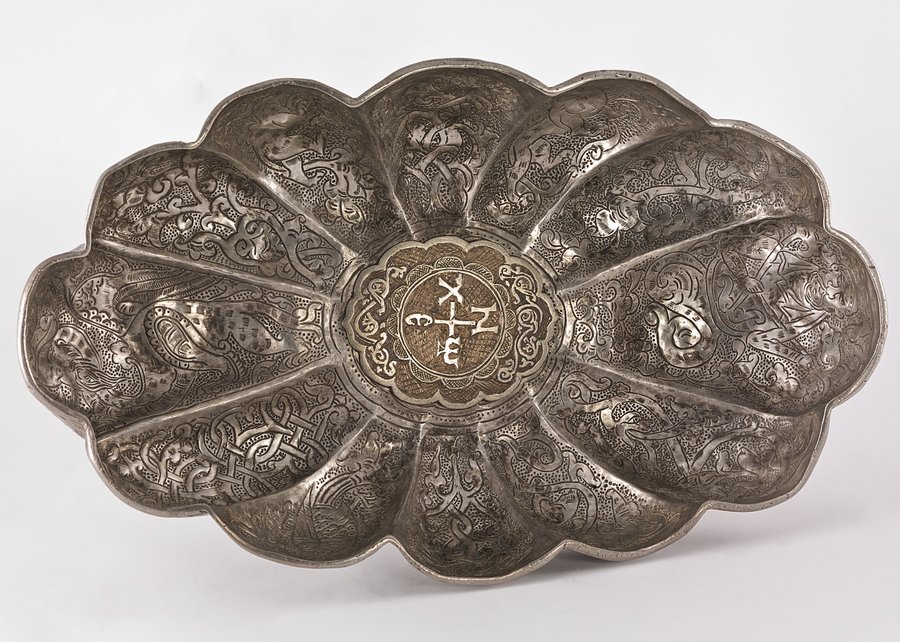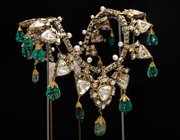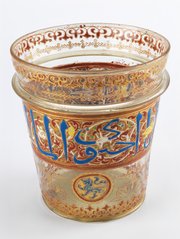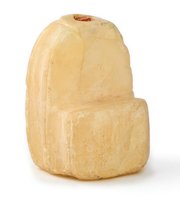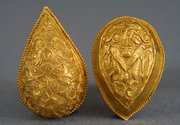
Lobed Silver Bowl
Museum of Islamic Art
- Title:
- Lobed Silver Bowl
- Production place:
- Central Asia
- Date:
- 1275 - 1325
- Period:
- Ilkhanid
- Title:
- Lobed Silver Bowl
- Production place:
- Central Asia
- Date:
- 1275 - 1325
- Period:
- Ilkhanid
- Material:
- Silver, Gold
- Technique:
- Hammering, Repoussé, Engraving, Peening, Gilding, Brazing
- Dimensions:
- 6 × 19.5 × 11.8
The lobed shape of this oval bowl in silver clearly echoes much older examples stemming from the silverware tradition of the Sasanian and post-Sasanian periods. However, the examination of the engraved decoration indicates this bowl be a later production with motifs originally mixing Sasanian-inspired elements with designs from completely different sources. The craftmanship of the bowl shares close resemblance with precious metalware produced for the elites of the Mongol Khanate of the Golden Horde, effectively ruling over a large portion of Asia, from the coasts of the Black Sea up to Siberia until the 9th century AH/15th century CE. This thus suggest the bowl to date to the However, the decoration appears rather different from Golden Horde examples due to the sense of vitality and humour it displays. A seated figure with a rather stern facial expression faces an hybrid creature (in between a feline and a dragon); they are placed within the largest lobes. The other lobes are filled with diverse foliate and floral decorations and strapwork set against a pounced background.
At a later stage, this bowl must have entered a Christian household as the central field has been overlaid with a cusped oval with Christian tetragram arranged around a cross.
